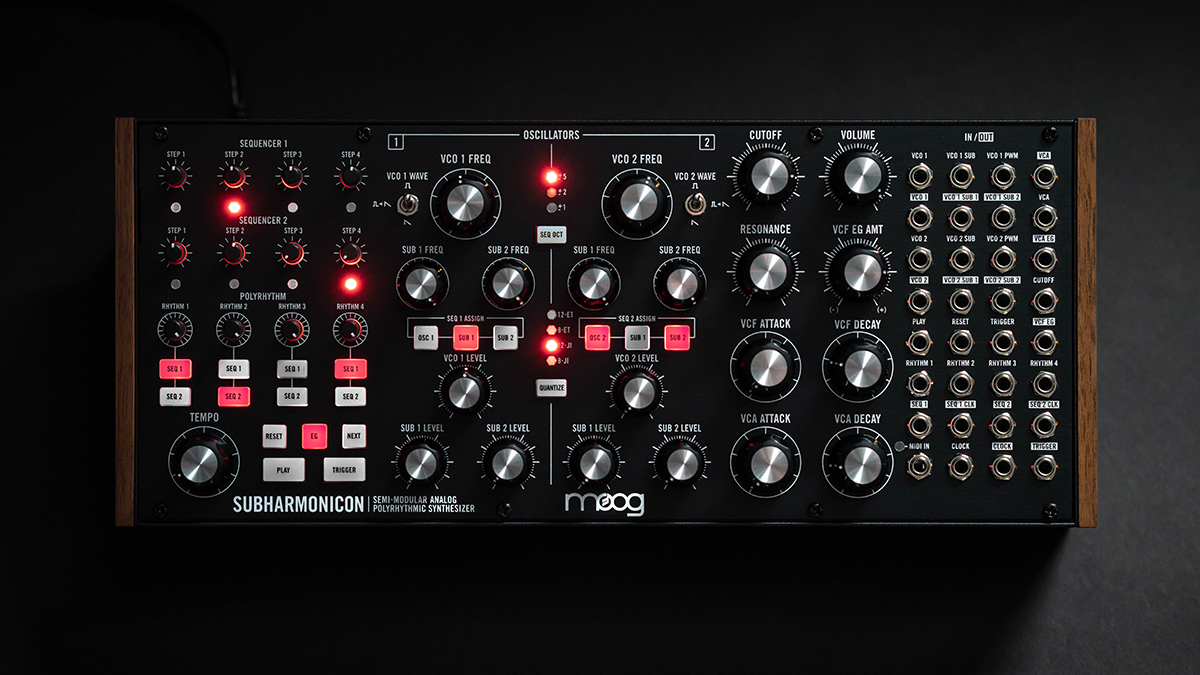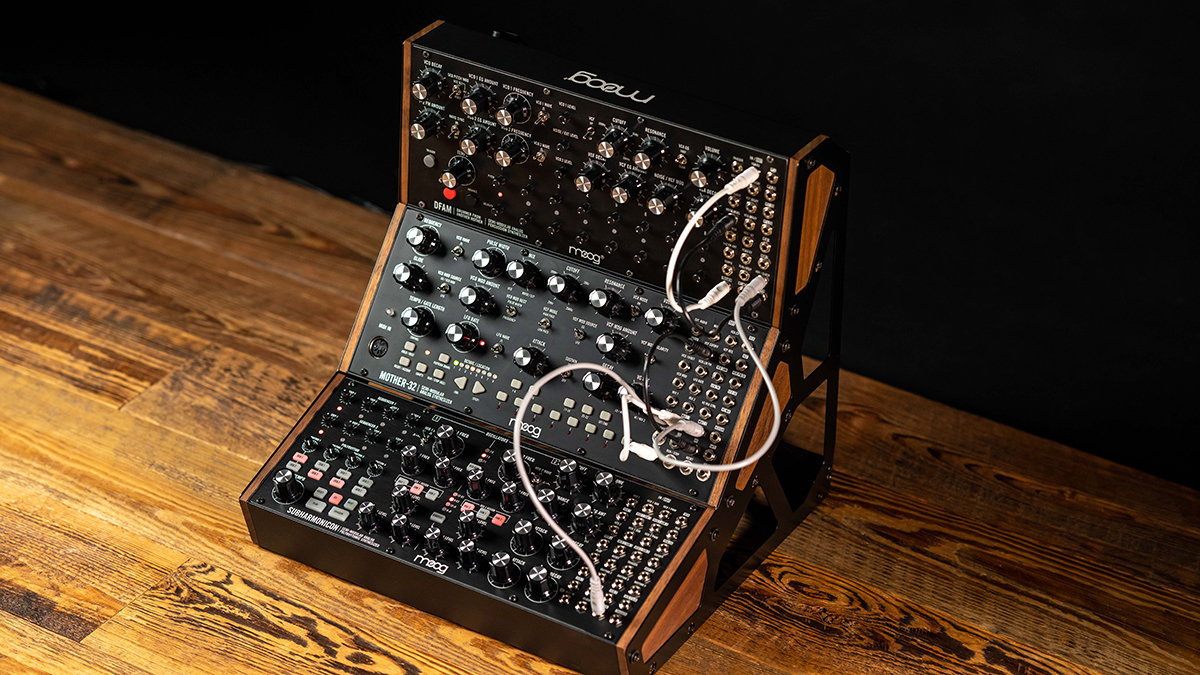Moog’s polyrhythmic Subharmonicon synth is here to divide and conquer
The Moogfest 2018 DIY build is now available to buy

If Moog is to be believed, there’s almost a spiritual element to its new Subharmonicon synth - first seen as a DIY build at Moogfest in 2018 but only now getting a proper release - with the company stating that it’s “equally suited for losing oneself and simultaneously finding oneself through sound”.
More prosaically, it’s actually a semi-modular analogue polyrhythmic synth that uses subharmonically derived synthesis to generate its sounds.
• Read our full Moog Subharmonicon review
If all of that sounds confusing, fear not, because Moog assures us that Subharmonicon is actually incredibly simple to use. It has two VCOs, four subharmonic oscillators, two 4-Step sequencers, and four rhythm generators, and can be used without patching anything if you wish. However, if you want to go deeper, you can patch it into itself or interface with Moog’s Mother-32, DFAM or other Eurorack-compatible gear.

Each of the subharmonic tones is mathematically derived from one of the two main VCOs, creating what are described as ‘chord shapes’. There’s onboard quantisation, which means that your intervals can sound perfect every time, or you can go a bit wilder with your tuning options.
These chord shapes can be animated using a pair of 4-step sequencers, each of which is clocked by any or all of four rhythm generators that output mathematical divisions of the master tempo. By layering these rhythm generators you can create complex polyrhythms, while further sonic exploration can take place using the dual envelope generators, Moog ladder filter and analogue VCA.
The Subharmonicon will be available soon at a price of $699. Find out more on the Moog website.
Get the MusicRadar Newsletter
Want all the hottest music and gear news, reviews, deals, features and more, direct to your inbox? Sign up here.



I’m the Deputy Editor of MusicRadar, having worked on the site since its launch in 2007. I previously spent eight years working on our sister magazine, Computer Music. I’ve been playing the piano, gigging in bands and failing to finish tracks at home for more than 30 years, 24 of which I’ve also spent writing about music and the ever-changing technology used to make it.
“Excels at unique modulated timbres, atonal drones and microtonal sequences that reinvent themselves each time you dare to touch the synth”: Soma Laboratories Lyra-4 review
“A superb-sounding and well thought-out pro-end keyboard”: Roland V-Stage 88 & 76-note keyboards review









